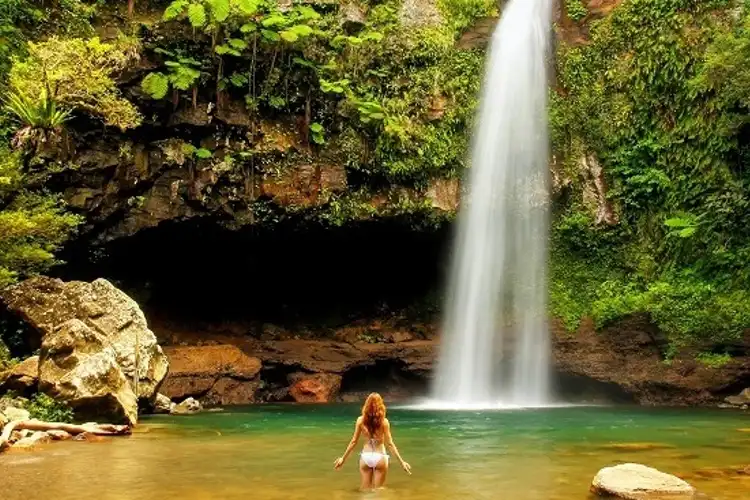Understanding Fijian Currency: What New Zealanders Need to Know
When planning a trip to Fiji, one of the most important aspects to consider is the currency used in the country. The official currency of Fiji is the Fijian Dollar (FJD), which is divided into 100 cents. As a New Zealander, you’ll find that the exchange rate can fluctuate, so it’s wise to check the latest rates before you travel. As of now, 1 New Zealand Dollar (NZD) is approximately equivalent to 1.5 FJD, but this can change, so always verify before making any large transactions. While credit and debit cards are widely accepted in major cities and tourist areas, small businesses and remote locations may only accept cash. It’s advisable to carry a small amount of cash for local markets, taxis, and other services. ATMs are available in urban areas, and you can also exchange your New Zealand Dollars at banks or official exchange bureaus. To minimize transaction fees, consider using your credit card when possible and inform your bank of your travel plans to avoid any issues with card usage abroad. Additionally, be cautious of your spending habits; it’s easy to overspend when indulging in Fiji’s pristine beaches and luxury resorts. For a comprehensive overview of Fiji’s currency and travel tips, visit Fiji Islands Overview.Transportation in Fiji: Navigating the Islands from New Zealand
Transportation in Fiji offers a mixture of options, allowing travelers to explore the islands with ease. New Zealanders will find the most common form of transport to be buses, taxis, and ferries. In Viti Levu, the main island where Nadi and Suva are located, local buses are an economical choice and run frequently between towns. The bus services are reliable, and fares are affordable, often costing just a few dollars. If you prefer more personalized transport, taxis are available, but it’s important to negotiate the fare before starting your journey, as taxis do not always use meters. Ride-sharing apps like Uber have also made their way to Fiji, particularly in urban areas, offering a convenient alternative for getting around. For those looking to explore the outer islands, ferries are the best way to travel. Companies like Awesome Adventures Fiji provide services between the major islands and are a great way to enjoy the stunning views along the way. Always check the ferry schedules as they can vary, especially during the off-peak season. If you’re considering renting a car, keep in mind that Fijians drive on the left-hand side of the road, similar to New Zealand. Ensure you have a valid driver’s license and familiarize yourself with local traffic laws. For further insights on Fiji’s transportation options, refer to the Fiji Islands Overview.Local Etiquette: Respecting Fijian Culture as a New Zealander
When visiting Fiji, it’s essential to embrace and respect the local culture. The Fijian people are known for their hospitality and warmth, but understanding their customs will enhance your experience. One of the most significant aspects is the traditional greeting known as “bula,” which is used to say hello and convey a sense of happiness. Dress modestly, especially when visiting rural areas or temples. Swimwear is acceptable at the beach but should be covered when away from the water. Additionally, it’s customary to remove your shoes before entering someone’s home or a place of worship. When interacting with locals, use polite language and gestures. A smile goes a long way in Fiji, and it’s encouraged to engage in friendly conversations. If you’re invited to a kava ceremony, a traditional ritual involving the sharing of kava drink, it’s a sign of respect; participating is considered an honor. Be sure to accept the kava bowl with both hands and drink it in one go. Learning a few basic phrases in Fijian can also enhance your interactions. Simple words like “vinaka” (thank you) and “moce” (goodbye) will be appreciated by the locals. For an in-depth understanding of Fijian culture and etiquette, check out the Fiji Islands Overview.Health and Safety Tips for New Zealanders Visiting Fiji
Health and safety should be a priority when traveling to Fiji. New Zealanders should ensure they are up-to-date on vaccinations before traveling. While Fiji is relatively safe, it’s wise to be cautious about food and water safety. Drink bottled water and eat at reputable restaurants to minimize the risk of foodborne illnesses. Fiji’s tropical climate can pose challenges such as sunburn or heatstroke. Pack sunscreen with a high SPF, wear a hat, and stay hydrated, especially if you’re engaging in outdoor activities. Mosquitoes can also be a concern, so bring insect repellent containing DEET and consider wearing long sleeves and pants in the evenings. In terms of safety, Fiji is generally safe for tourists, but it’s essential to stay vigilant, especially in crowded areas. Keep your belongings secure and be cautious of your surroundings. Familiarize yourself with emergency numbers; in Fiji, dial 911 for police or medical emergencies. Additionally, consider travel insurance that covers health emergencies and unexpected cancellations. For more guidance on health and safety in Fiji, visit Fiji Islands Overview.Exploring Fijian Cuisine: A Culinary Adventure for New Zealanders
Fijian cuisine is a delightful fusion of indigenous Fijian, Indian, and Chinese influences, providing a unique culinary experience for New Zealand travelers. One of the must-try dishes is kokoda, a traditional Fijian dish made with fresh fish marinated in lime juice and mixed with coconut milk, onions, and tomatoes. This refreshing dish is a staple in coastal areas and is often enjoyed as an appetizer. Street food is also a big part of the Fijian experience. Vendors offer a variety of snacks, including roti filled with curried meats and vegetables, and the ever-popular lovo, which involves cooking food in an underground oven. Participating in a lovo feast is not only delicious but also immerses you in the local culture. New Zealanders may find that Fijian meals are generally larger and more communal. It’s common for locals to share food among family and friends. If you’re invited to a meal, it’s considered polite to partake and try a little bit of everything. For those with dietary restrictions, many restaurants cater to different needs, including vegetarian and gluten-free options. Always communicate your dietary preferences to ensure a pleasant dining experience. For a deeper insight into Fijian cuisine and dining options, refer to the Fiji Islands Overview.Communication Tips: Staying Connected While in Fiji
Staying connected while traveling in Fiji is essential for both safety and convenience. As a New Zealander, you can use your mobile phone in Fiji, but it’s important to check with your phone provider about international roaming charges. If you prefer to avoid hefty fees, consider purchasing a local SIM card upon arrival. Providers such as Digicel and Vodafone offer prepaid plans that are cost-effective and provide good coverage across the main islands. Wi-Fi is widely available in hotels, cafes, and restaurants, although the speed may vary. Always check if the establishment offers free Wi-Fi and be prepared for some locations to charge a fee. Using Wi-Fi for messaging and calls through applications like WhatsApp or Viber can help you keep in touch with friends and family without incurring high costs. When it comes to language, English is one of the official languages in Fiji, making communication easier for New Zealanders. However, learning a few basic phrases in Fijian can be beneficial and appreciated by locals. Phrases like “bula” (hello) and “vinaka” (thank you) can enhance your interactions. For more information on communication options during your stay, visit Fiji Islands Overview.Planning Activities and Experiences in Fiji: A Guide for New Zealanders
Fiji is known for its stunning landscapes and vibrant marine life, offering numerous activities for adventurous travelers. New Zealanders will find that snorkeling and scuba diving are particularly popular due to the clear waters and coral reefs. The Mamanuca and Yasawa Islands are renowned spots for these activities, with many tour operators providing equipment and guided tours. For those who prefer land-based activities, hiking trails abound in Fiji. The Bouma National Heritage Park on Taveuni Island offers lush rainforests and breathtaking waterfalls. Make sure to wear appropriate footwear and carry water and snacks for your hike. Cultural experiences are also plentiful. Consider visiting a local village for a guided tour, where you can learn about Fijian traditions and participate in a traditional meke dance. This immersive experience will deepen your appreciation for the local culture. Lastly, don’t miss out on relaxing on Fiji’s beautiful beaches. Spend a day soaking up the sun at Natadola Beach or explore the idyllic islands of the Mamanucas. For more information on activities and experiences in Fiji, check out the Fiji Islands Overview.FAQs
What currency is used in Fiji, and how should I handle money while traveling?
The currency used in Fiji is the Fijian Dollar (FJD). It’s advisable to exchange some New Zealand Dollars (NZD) for FJD before your trip or upon arrival at the airport. Credit cards are widely accepted in hotels and larger restaurants, but it’s a good idea to carry cash for smaller vendors and rural areas.
What are the best transportation options for getting around Fiji?
In Fiji, you have several transportation options, including buses, taxis, and rental cars. Buses are a cost-effective way to travel between cities and towns, while taxis can be found in urban areas. For more flexibility, consider renting a car, but be mindful that driving is on the left side of the road, similar to New Zealand.
Are there any local customs or etiquette I should be aware of while in Fiji?
Fiji has a rich cultural heritage, and it’s important to respect local customs. For example, always greet locals with a friendly “Bula!” and remove your shoes before entering homes or temples. Dress modestly, especially in rural areas, and be mindful of photography; ask for permission when photographing people or sacred sites.
What is the best time of year to visit Fiji for New Zealanders?
The best time to visit Fiji is during the dry season, which runs from May to October. During this period, you’ll experience pleasant weather, less humidity, and fewer chances of rain. However, the shoulder months of April and November may also offer good deals while still providing favorable conditions.
What should I pack for a trip to Fiji?
When packing for Fiji, include lightweight, breathable clothing suitable for warm weather, swimwear, and reef-safe sunscreen. Don’t forget insect repellent, a hat, and a reusable water bottle to stay hydrated. If you plan to visit villages or temples, pack modest clothing that covers the shoulders and knees.
Are there any health precautions I should take before traveling to Fiji?
Before traveling to Fiji, ensure you are up to date on routine vaccinations. It’s also wise to consider vaccinations for Hepatitis A and Typhoid, depending on your travel plans. Bring any personal medications you may need, and consider travel insurance that covers health needs while abroad.
How can I best experience the culture and lifestyle of the Fijian Islands?
To immerse yourself in the local culture, participate in traditional activities like a kava ceremony, attend a meke (dance performance), or visit local markets. Engaging with the community, respecting customs, and trying local foods will enrich your experience and help you appreciate the unique lifestyle of the Fijian Islands.
References
- Fiji Islands Official Tourism Website – Comprehensive information on travel tips, attractions, and local customs for visitors to Fiji.
- Lonely Planet – Fiji – A detailed travel guide offering insights on transportation, currency, and cultural etiquette in Fiji.
- Visit Fiji – Official tourism site featuring essential travel tips, including local currency and transportation options.
- Travelfish – Fiji Travel Guide – A resource for travelers with practical advice on getting around, currency exchange, and local customs.
- Fiji Travel FAQ – A helpful FAQ section addressing common questions about currency, transportation, and etiquette for travelers to Fiji.







